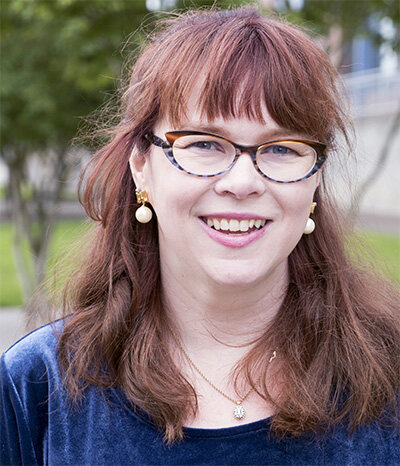Milgard School economic Margo Bergman has been awarded a COVID-19 economic research recovery grant, one of 18 funded by UW’s Population Health Initiative.


UW Tacoma Senior Lecturer Margo Bergman has been awarded a COVID-19 economic research recovery grant. Bergman’s project is one of 18 funded through the University of Washington’s Population Health Initiative.
The recovery grants are meant to help researchers at all three UW campuses examine the economic challenges created by the pandemic. For her project, Bergman teamed up with the City of Puyallup’s Economic Development Manager Meredith Neal to look at why people are choosing to stay home even as the state reopens under the four-phase Safe Start plan.
Bergman, an economist on the faculty of the Milgard School of Business since 2014, is looking specifically at two factors: concerns about public health measures and concerns about the economy. “There are two kinds of uncertainties we are facing,” she said “People have been out of work and may not have enough money to return to their standard level of economic activity and the other kind of uncertainty involves public health and whether measures taken by businesses address people’s concerns. Bottomline is, we do not know if people aren’t going out because they don’t have the money or they are afraid of getting COVID-19.”
The study will focus on restaurants in Puyallup during Phase 2 and possibly Phase 3 if and when Pierce County receives approval to move forward. “We’re focusing on restaurants because that’s where the public health uncertainty is likely to be the greatest because eating a meal means having to take off your mask.”
Bergman is creating online surveys that the City of Puyallup will help distribute to business owners and customers. The data will ultimately be compiled in a report, but Bergman says she will be sharing information with the City throughout the process. “This will help the City of Puyallup make decisions on what they need to do in terms of either supporting economic programs or public health programs,” she said.
Puyallup is a smaller city with two distinct shopping corridors. “Smaller towns and cities don’t have a lot of money to work with in terms of helping support businesses,” said Bergman. “Puyallup is interesting because it has two economic drivers. One is Main Street, which is mostly local businesses and the other is their mall which is mostly larger chains. So, this also gives us a way to differentiate between trust centers and who the public thinks does a better job with public health.”
No two cities are the same, but Bergman thinks the information collected will be valuable to other small municipalities. “The city planners and managers in these places talk to each other,” she said. “They might be able to take this information and see if the same holds true in their town.”






































